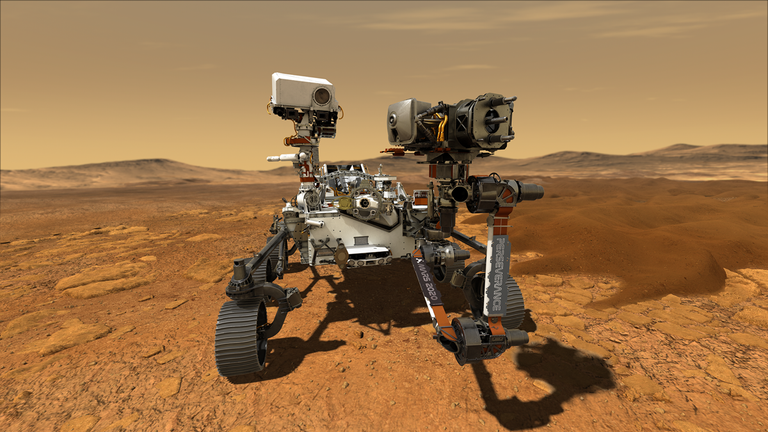The scope and new objectives of the Perseverance Rover.
The scope and new objectives of the Perseverance Rover.

Souce
On December 12, NASA announced that the Perseverance Rover reached the Jezero crater and is heading towards its first scientific stop, after a climb of months, it has lasted months to climb the 500 meters in height, specifically 3 months and a half.

Souce
The highlight of the route, there are several stages of the new route, would be to reach Lake Charmes, the Lake thing to keep in mind is not because it is a lake today, I suppose they have given it that name because in ancient times it was a lake, in fact, They believe that this very ancient lake was better preserved than the Jezero crater area, so maybe it has some interesting surprises.

Souce
A key objective of the Perseverance mission on Mars is astrobiology, which includes the storage of samples that may contain signs of ancient microbial life, the Rover will try to analyze not only the geology of the planet, it will try to characterize and analyze the possible remains of life in the past and present, if possible; At present, if there is life on Mars, we suspect at least it would be the last places where it could be searched, it would be under the Martian surface, just as it happens here on Earth.
The images without reference were created with AI
Thank you for visiting my blog. If you like posts about #science, #planet, #politics, #rights #crypto, #traveling and discovering secrets and beauties of the #universe, feel free to Follow me as these are the topics I write about the most. Have a wonderful day and stay on this great platform :) :)
0
0
0.000
Thanks for your contribution to the STEMsocial community. Feel free to join us on discord to get to know the rest of us!
Please consider delegating to the @stemsocial account (85% of the curation rewards are returned).
You may also include @stemsocial as a beneficiary of the rewards of this post to get a stronger support.